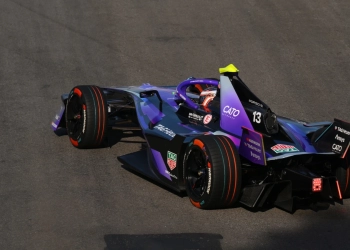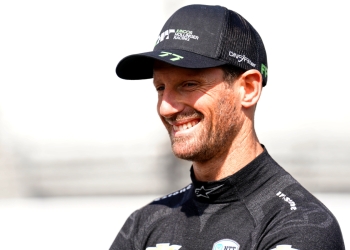Formula 1 is targeting a 24-race calendar in the near future according to managing director of motorsports Ross Brawn, who says that number has been identified as the optimum amount.
Currently the calendar features 21 races, which is a record amount and what some consider the absolute maximum, but Brawn says three additional races can comfortably be accommodated if certain changes to the race weekend are made.
Although Brawn wouldn't be drawn on exactly what changes Liberty Media and his team are considering, he insisted a three-day race weekend wouldn't be cut down, but it could be structured more efficiently to help teams.
"We want to increase the amount of races – the number we have said we are targeting is 24 – so we need to reduce the impact of a race weekend on the teams so that we can fit those races in," Brawn said in the official Singapore Grand Prix preview.
"We believe Formula 1 can accommodate more races though the message is very clear: they have to be 24 quality events. We don't want races just because they're adding numbers, we want them because they really add to Formula 1.
"We're looking at how we achieve that and are currently in discussion with the teams on how we can configure a race weekend to make it more effective, efficient and entertaining.
"There is an acknowledgement on our part that we need to have three-day events, because circuits and broadcasters want fans to engage for that length of time. I think any thoughts of a two-day event have certainly been put back for future discussion.
"That leaves us with the question of how we best shape those three days for the fans at the track, for those watching on TV, and for the teams to operate."
Qualifying and Format Changes?
There has been talk of tweaking the format to have just two practice sessions on Friday, a Saturday qualifying session and race, before the main feature race on Sunday – with the grid decided by Saturday's finishing order, which would lead to a more mixed-up grid.
However some fans have questioned the need to tweak qualifying and the overall format. Brawn, although he agrees the current format is good, believes it can be "enhanced" with greater jeopardy and risk.
"Qualifying is very good at the moment and the fans like it," added Brawn. "They particularly enjoy the sort of build-up to the crescendo at the end. But can we enhance it? Put it this way: there's qualifying for qualifying's sake, and there's qualifying for the sake of the race.
"What I mean by that is this: taken as a stand-alone event, you definitely want qualifying to be about the very best fighting at the front to see who's the quickest. But when you think about qualifying as an element of how the race pans out, then you want qualifying to stir it up a bit and create some disorder, so that you've got strong cars out of place.
"Then qualifying improves the race. So the level of jeopardy in qualifying is something we want to look at, where perhaps by reducing the number of runs a car does in each session, teams can't optimise everything.
"I think we'll move very cautiously, though, because the current format is popular and successful."






